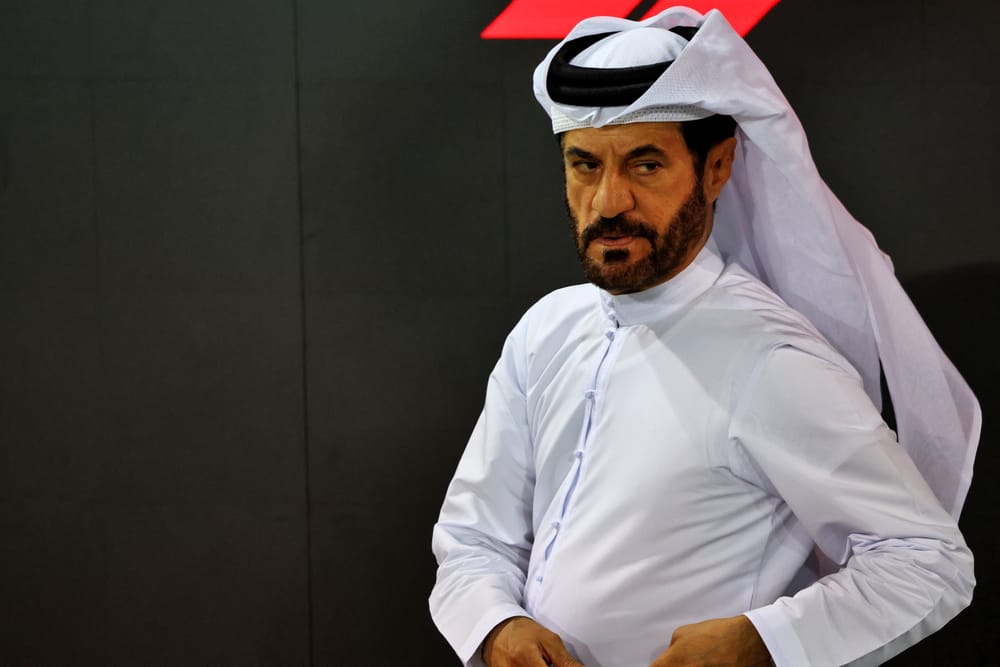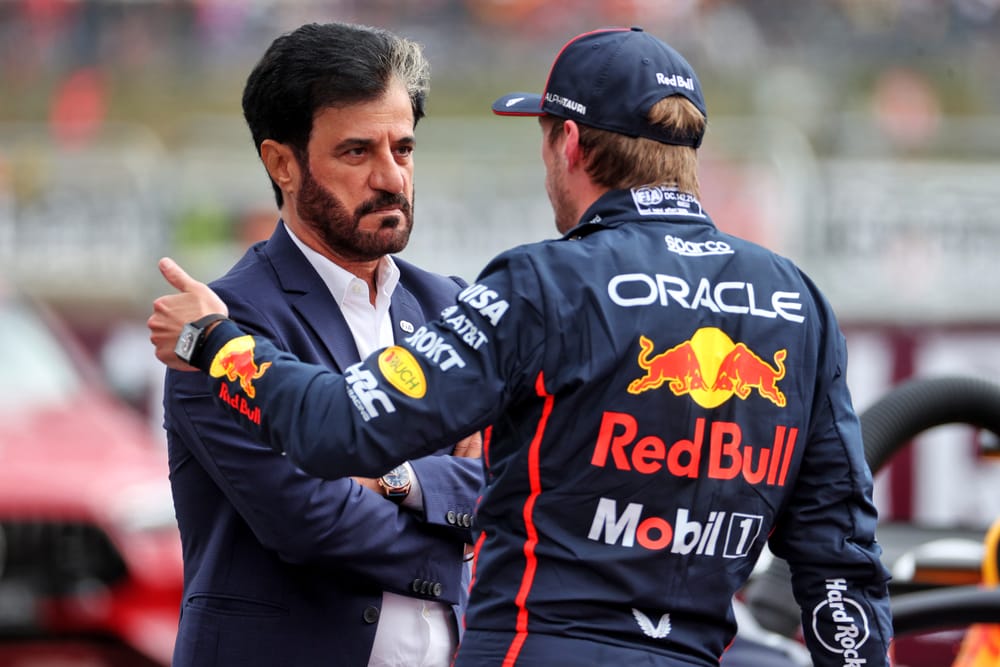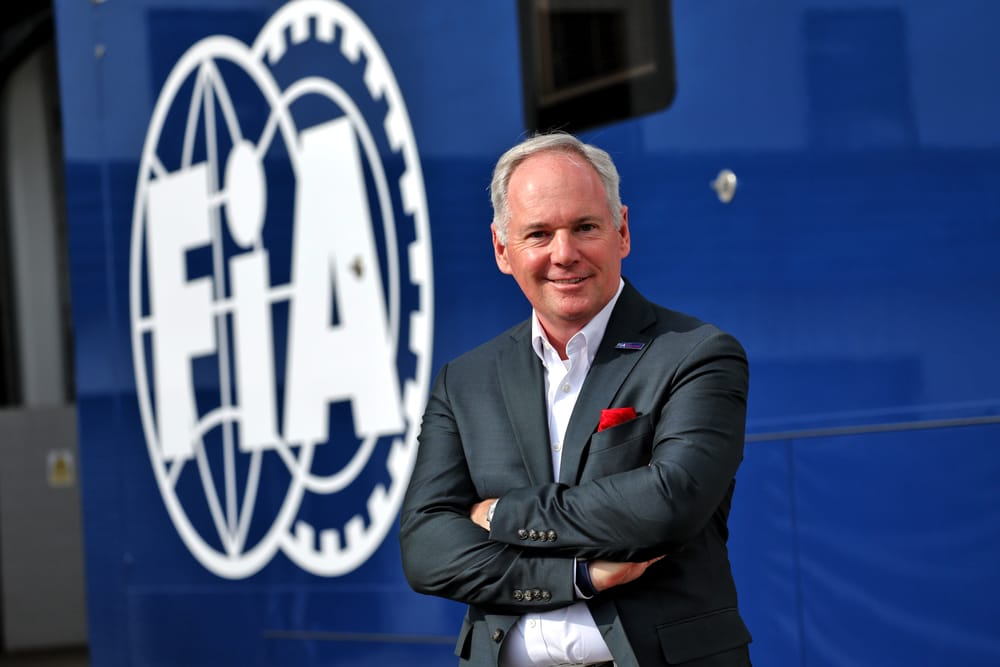FIA president Mohammed Ben Sulayem is never more alive than when the critics have him in their crosshairs.
He is someone who has always revelled in standing up to those who are putting him down.
So it is no surprise to find, after former Formula 1 steward Tim Mayer announced his intention to stand in this year's presidential election, having expressed dismay at what he said had been a "reign of terror", that Ben Sulayem is facing things heads on rather than shying away.
As he often does in moments when he is targeted, he is robust when it comes to explaining his perspective. And this includes a habit of throwing back questions the other way.
It makes interviewing him sometimes an unsettling experience, because it becomes very much a two-way process of him being asked questions, and then putting you back on the spot immediately.
A great example of this was when he was pushed on gauging his level of support within the FIA as the election fight looms, especially in the wake of controversial changes to the statutes being approved at the FIA's general assembly in Macau in June.
Just one day before the vote, Austria's national motoring club, the OAMTC, criticised the revisions and urged mobility world council members to postpone the vote so more debate could be had on them.
The push for a delay failed and the amendments, which included making changes to the election process, were voted through with 83.35% support. Tweaks to the ethics code got more than 88% backing.
Such internal criticism on one side, and then an overwhelming level of support on the other, are typical of what has been a contrasting narrative of Ben Sulayem's presidency. He seems to have earned himself both intense critics and some strong loyalists at the same time.
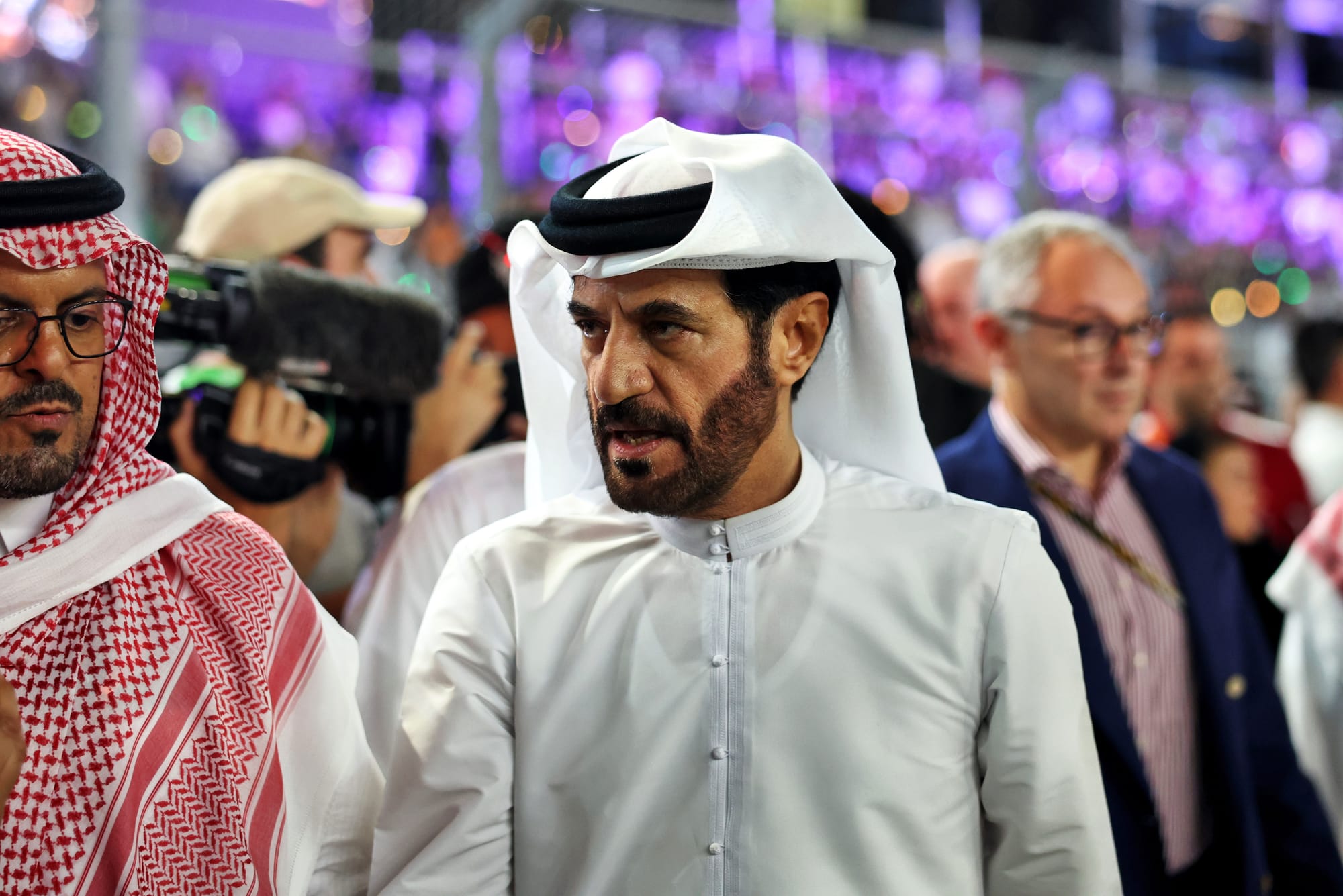
That is why he says talk of there being a wave of clubs against him is wrong.
"It's about five clubs," he says as we speak in his office in the FIA motorhome, before his first question comes.
"Do you know how many clubs we have?" he shoots back.
With a quick response of "245", Ben Sulayem continues as he staunchly defends the approach made with statute changes: "So you've got to do the maths. It's minus five. Yeah, that's it.
"Does that matter? OK, we listen to them, but they didn't phone [me].
"Let's look at the changes in some of the areas. First of all, you have to understand, we have the SRC [statutes review commission].
"Previous to me, when the previous president was there, he was the chair. Who is the chairman now? Not me.
"I don't want to be involved. As long as the power remains with the general assembly, I let it go."
The need for change
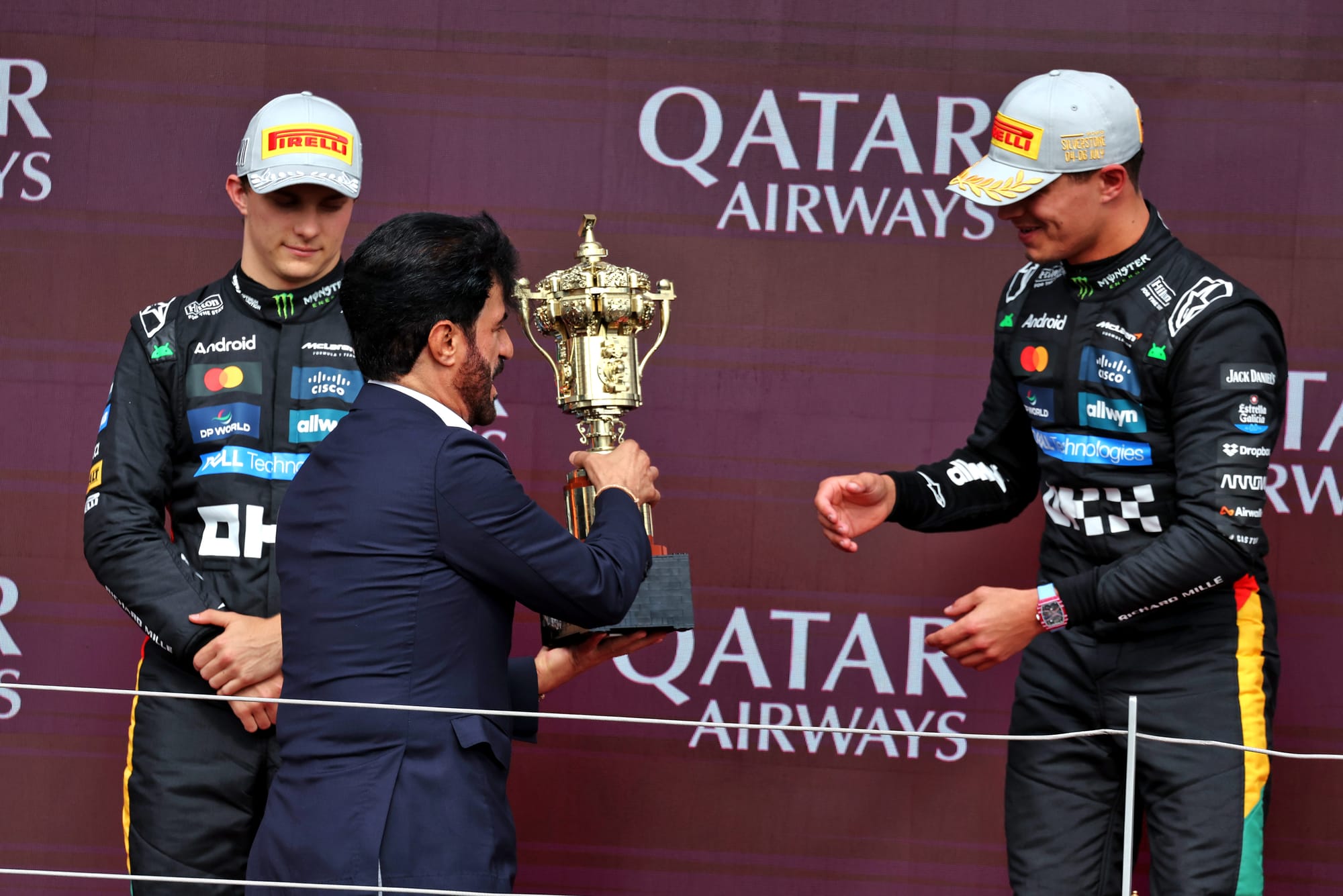
Ben Sulayem's first line of defence to criticism about the scale of revisions to the way the FIA is run is that all democratic processes have been followed.
And while not everyone may like his approach to running things, he suggests that things cannot stay the same forever because change is an essential thing.
"Things are always an improvement," he says, before throwing another question back.
"Do you use faxes in your office? No? Telegraph? No? Telegrams? No? OK. Do you use the old typewriters? No? OK!
"So when change happens people talk about it, but what should we do?
"The SRC, they open regularly to hear representation of all the regions.
"They gather, they put some ideas [in], then they go on and make informative sessions with the two bodies [mobility and sport] and the councils. And these informative sessions last for hours and hours.
"Then, if they agree to take it forward, there is a vote, and then it goes to the general assembly, and then I say, 'Excuse me, to the legal [team], I just want to be very clear, is there in these changes anything taking power from this body?'
"If no, and they have to tell the truth, then I say please go ahead and vote.
"So what do you want me to do? Please, just listen to one or two [who are unhappy]? No, I listen to the majority. And that's the democracy we have.
"Democracy. When it works for people, they are happy. They ask for democracy with the flags; when it doesn't suit them, you know that."
Collision course
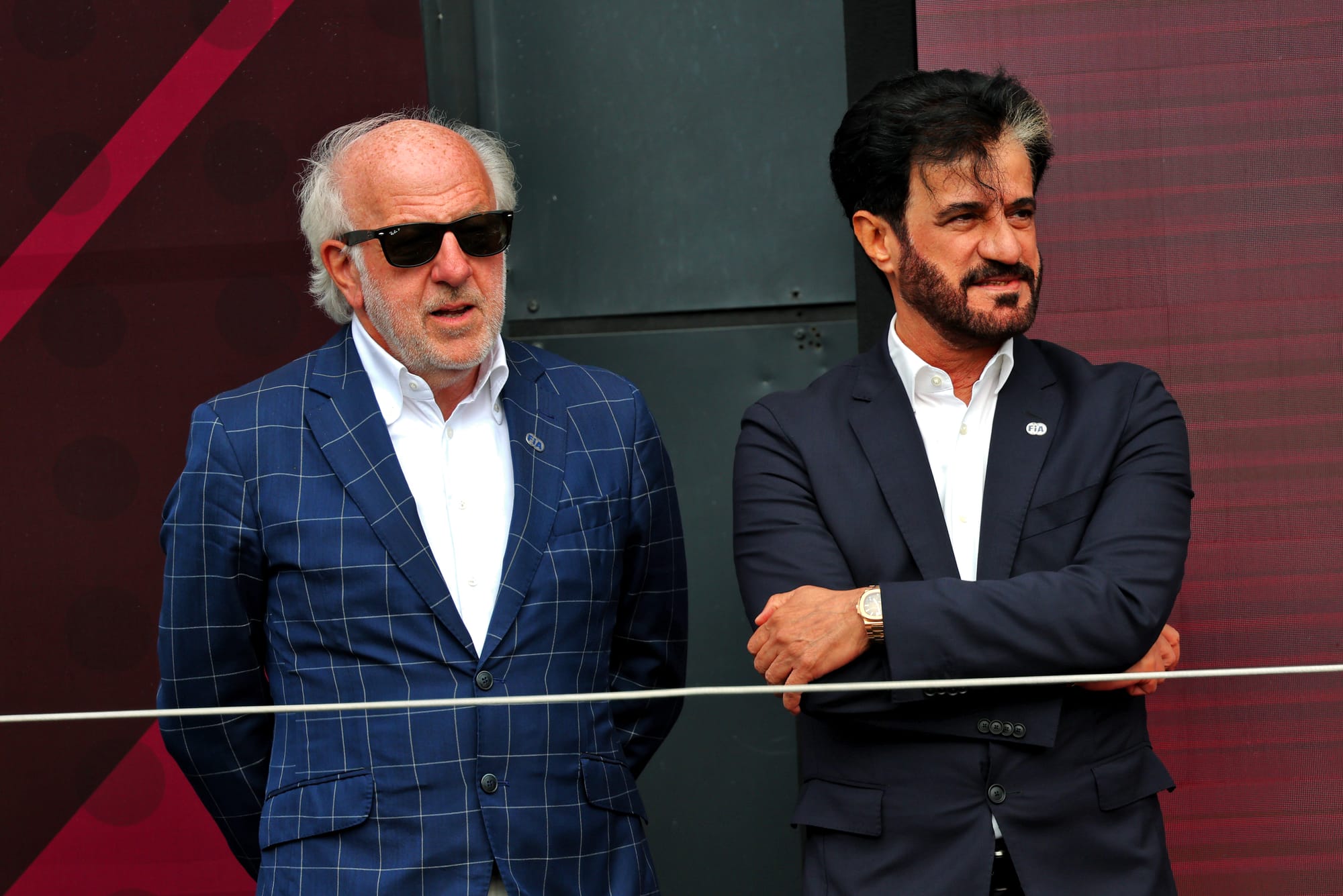
Ben Sulayem's conviction in his approach, and his stout style of management, has inevitably put him on a collision course with many people.
The combined elements have played their part in a raft of senior departures from those unhappy about the way things are run, or dismissals from those who he felt were not the right fit.
But he is not blind to the fact that things have not always been ideal, with a swift response to a question about whether he felt he had been a perfect president: "No."
To counter that, though, he suggests that changes he wanted to implement have taken much longer than he expected due to internal resistance from some within the FIA.
"I was blocked, my hand," he says. "We need to improve their way of dealing with the people.
"The first day, the first time I go there, I felt that the staff were working for the promoters, not for the members.
"Members were not allowed to come in the office. And now they can go, and they see smiling people.
"For us to get there, it was not an on/off switch. You go. It's a process. It's a trust. It is training people, and waiting for them.
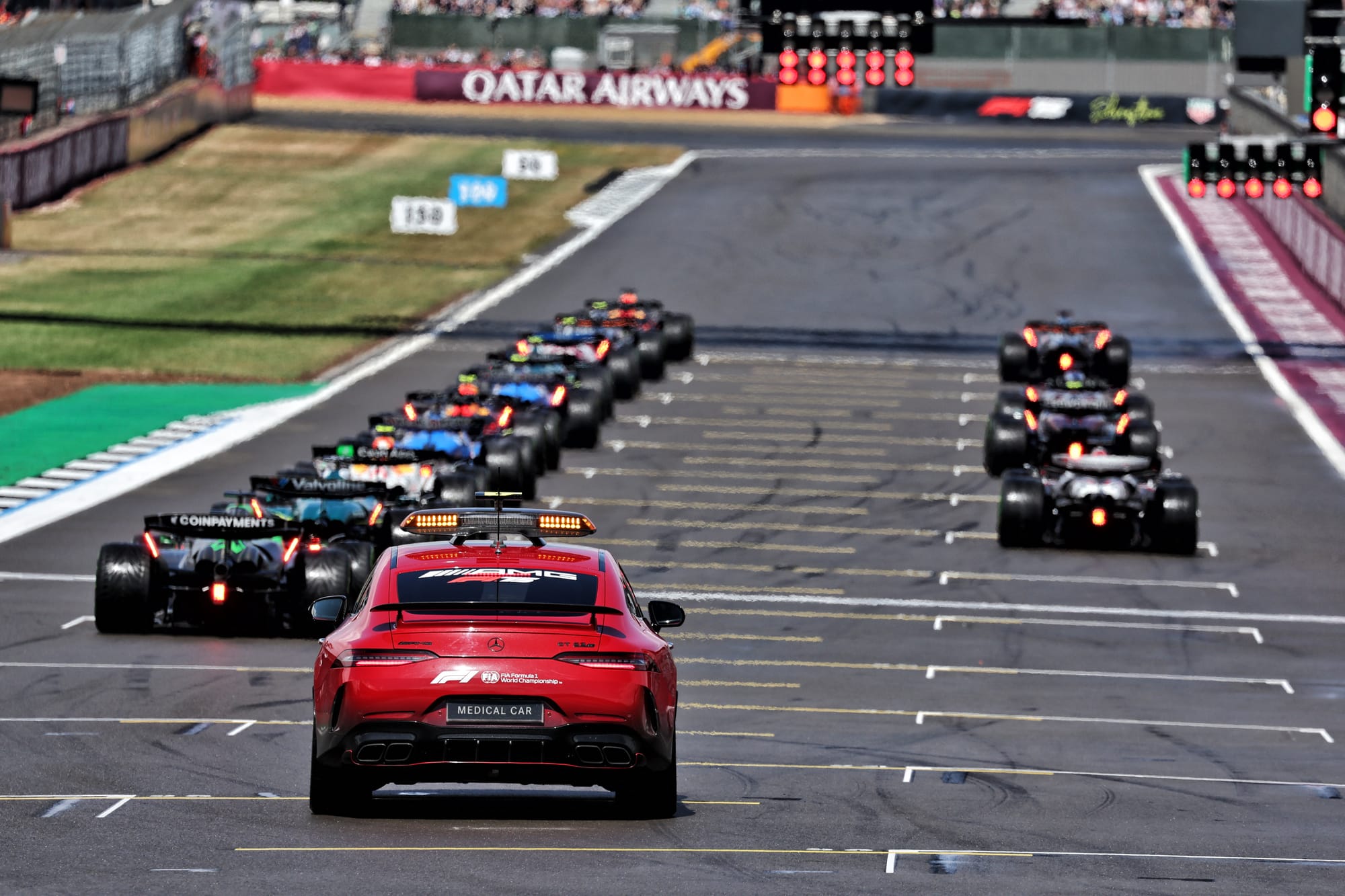
"But maybe they don't want that style. They go and they want to change or they want to leave. It's up to them.
"We don't want first people to stay or to go out. We just give tasks, and we expect them, as long as they take the money of the members, to deliver. It's as simple as this.
"So, when you ask me, yes, I am happy. But I was hoping coming from being a rally driver, I was hoping for it to be fast.
"But to deal with FOM [Formula One Management], it's not easy, you know. The FIA didn't exist [to them] before - even this motorhome was not there. Nothing.
"And now I'm coming with governance [changes]. Of course, you make mistakes through that, but if we don't work together [then nothing improves].
"We listen. Even with the regulation with the drivers, we improve the Appendix B, and now look.
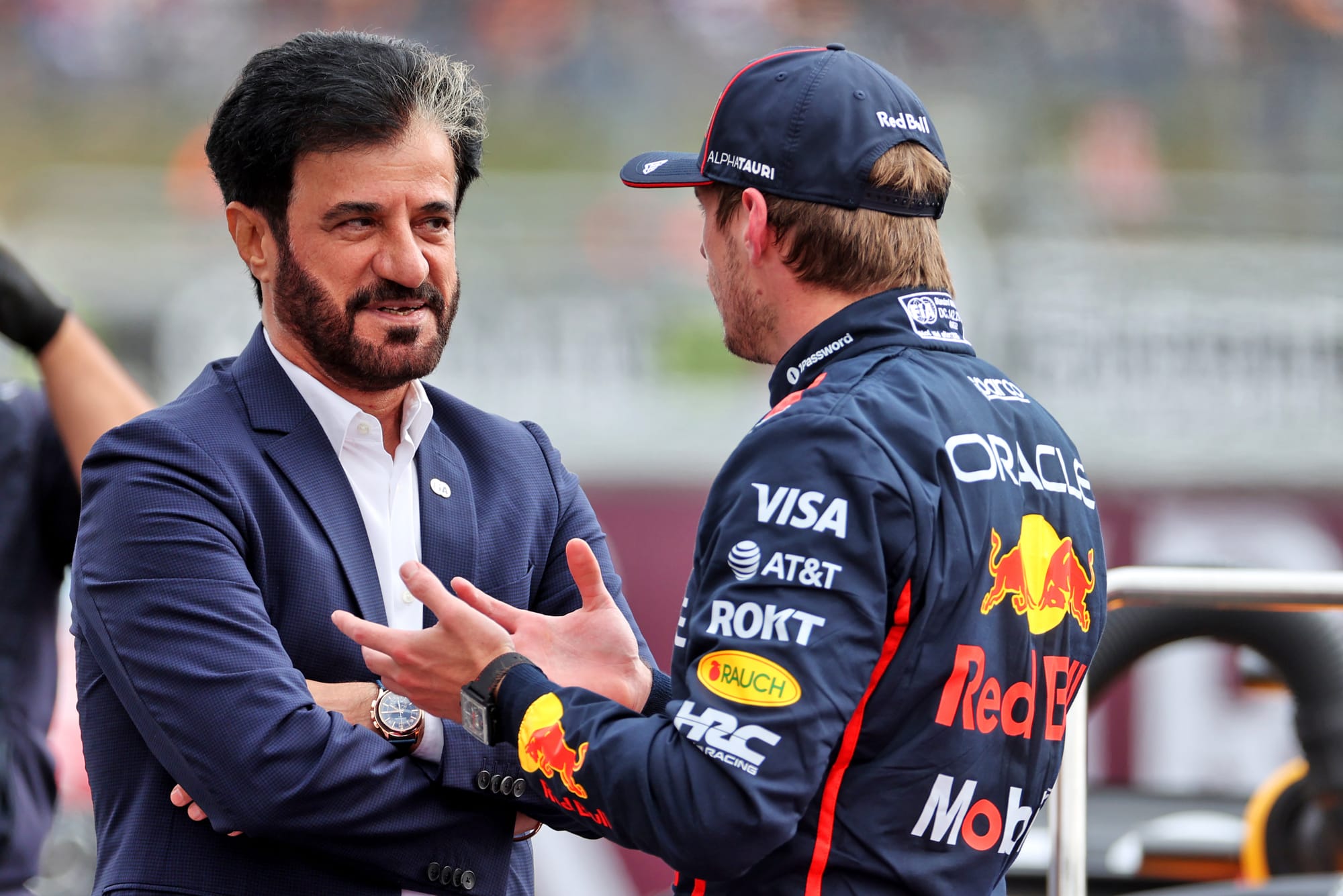
"I lacked the information to go forward, and then I put something that is suitable, but you cannot find it from the first go.
"Of course, you get some criticism, you get drivers [speaking out], and then you look: 'Is that the right thing that we did?' Regulations are there to be changed. They are not the book of God. But it takes time.
"With the FIA, maybe I was hoping to do the changes earlier, but at least we achieved the finance at the time that I promised.
"I'd like you to go and the look at the manifesto...and just go, yes; no; yes. I leave it to you. Please do it..."
What did the manifesto say?
We did it. In response to Ben Sulayem's challenge, The Race has dug out the main strands from his manifesto back in 2021.
While the original document was quite lengthy, there were some key ambitions he laid out which got him voted in as president.
Here are five key areas that Ben Sulayem outlined in his manifesto, with a review of how much has been achieved on each so far.
Double motorsport participation

Over his first term, Ben Sulayem wanted to double global participation in motorsport, especially at amateur and youth levels.
This would be achieved through improving affordability and accessibility, which meant developing low-cost motorsport categories and support for grassroots events.
While doubling participation may be a milestone that was not hit, a lot of progress has been made, which included the launch of the FIA's Affordable Cross Car programme that was rolled out in 2023 and 2024 and was hailed by Ben Sulayem as a "milestone".
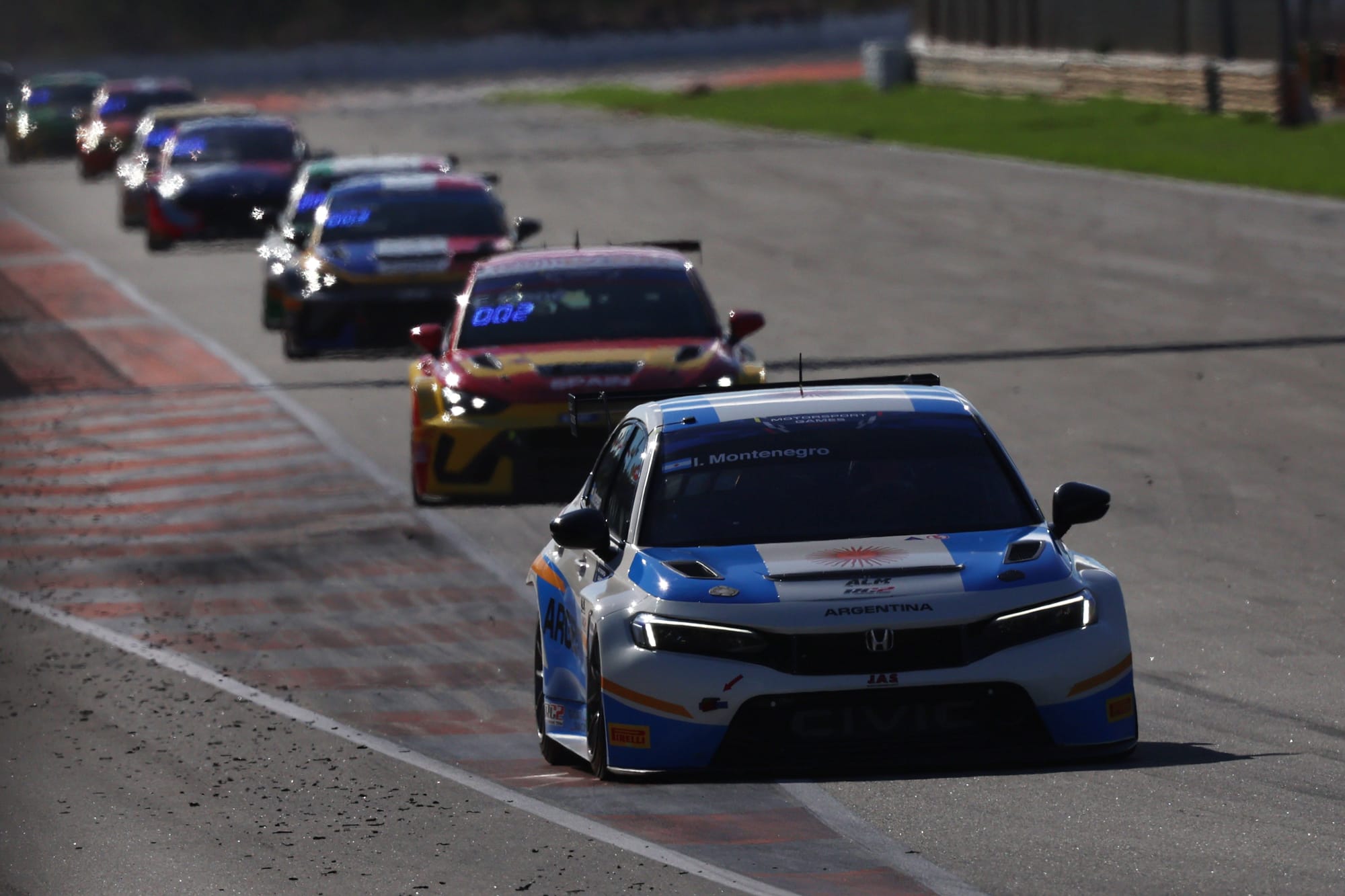
The FIA's regional development programme has also boosted events at a grassroots level, with the governing body also expanding its own Motorsports Games.
The direction of travel on this front is going the right way, even if the ambitious original numerical target may not have been hit.
Have best-practice governance structures in place with increased transparency
Steps were taken on this front, with an external governance review in 2022 commissioned, plus a desire to align greater with IOC (International Olympic Committee) standards of transparency.
There was also the FIA's first CEO (Natalie Robyn) hired, who worked on a restructuring to modernise the governing body. However, progress slowed when she departed in the middle of 2024 and no one has since been brought in as a direct replacement.
Critics argue that promises of transparency have fallen short, with not enough internal reporting on progress made and too many decisions taken behind closed doors by Ben Sulayem and the president of the senate.
More recent statute changes have led to claims of independent oversight being weakened with power more centralised than ever before.
There have also been suggestions that debate in world councils has been stifled through rushed E-votes, and the controversial non-disclosure agreement that some in the World Motor Sport Council refused to sign because they felt it was a gag order.
Eliminate the FIA's operating losses by 2023
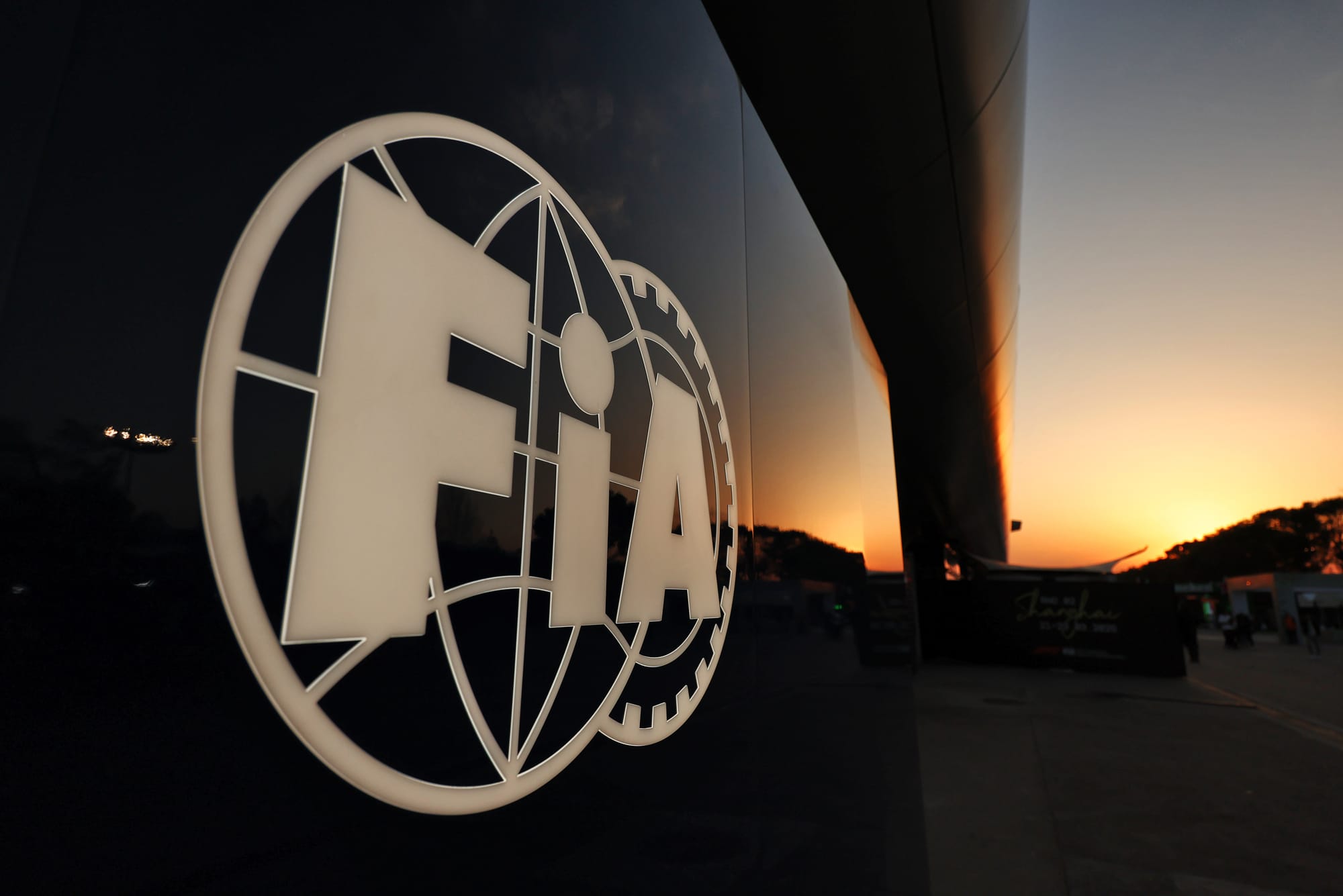
Ben Sulayem proudly announced earlier this year that the FIA had returned to an operating profit in 2024 of €4.7million, which ends five consecutive years of losses.
Having inherited a governing body that reported a loss of €24m in 2021, the turnaround is dramatic, and has been achieved through a combination of cost-cutting and enhanced revenue.
While getting back into the black may have been a year later than the manifesto pledge suggested, being just 12 months out is close enough to the original target to be viewed as a hit.
However, there are some financial elements that have triggered unease, with promises about full transparency of financial results (plus the president's own expenses) not going as far as some would like.
And Mayer, in his campaign launch, suggested that the financial success story was an illusion, because it was simply a matter of the governing body getting back to pre-pandemic levels of income.
Strengthen diversity and inclusion
Ben Sulayem promised to accelerate inclusion and diversity in both motorsport and mobility.
This has been addressed in several ways, which included appointing a dedicated equality, diversity and inclusivity officer, with Tanya Kutsenko duly hired in 2022.
Other significant milestones included FIA university scholarships and the immersion exchange, and even the Affordable Cross Car project lowered the barriers for some who may not have had access to motorsport before.
There was also an equality, diversity and inclusion category included in the FIA's presidents' awards from 2022.
More women are now represented in FIA leadership than ever before, which includes those on FIA commissions and Fabiana Ecclestone becoming FIA vice president for sport in South America.
But Ben Sulayem's tenure has not been without controversy on this front, with Mayer suggesting that talk of progress with inclusion had also been an "illusion".
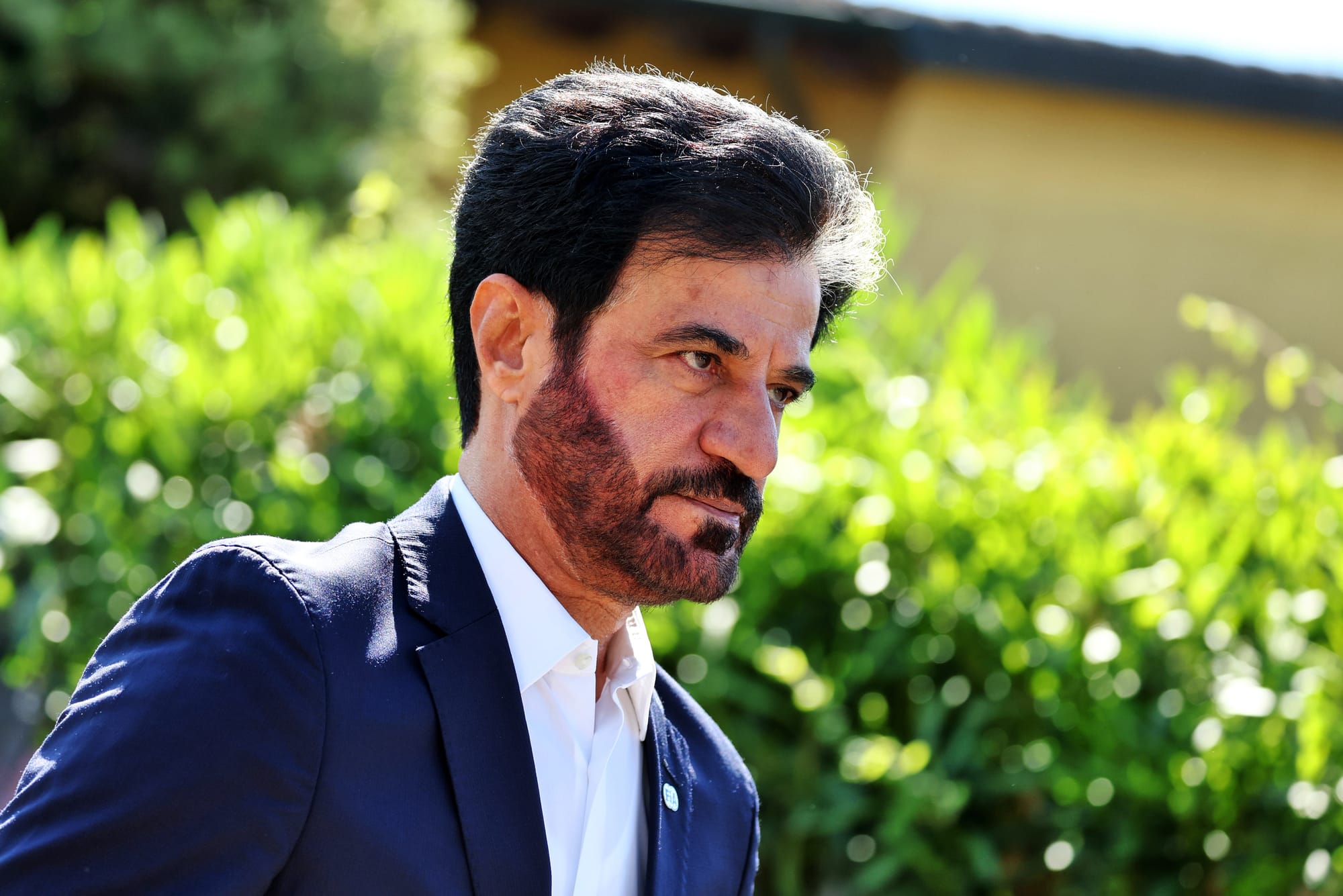
Old comments from Ben Sulayem on a blog post suggesting he did not like women who think they are smarter than men caused a media furore early in his term.
He was also reportedly accused in a letter of sexist behaviour by former interim secretary general of motorsport Shaila-Ann Rao following her departure in 2022, but she subsequently has returned to work with him as an advisor.
Have stronger regions and being more 'member led'
Ben Sulayem has made much of trying to empower regions more, and giving clubs a greater voice in both governance and FIA programmes.
This has been seen through on several fronts, which has included the FIA regional development programme that funded several projects across all continents to strengthen local motorsport.
There was a new Motorsport in a Box scheme to help clubs at a grassroots level and a president's development fund of $1.5m set aside for grants.
He has also been known to consult more with the FIA's regional vice presidents, and hosted regional congresses to gather input before major policy changes.
Some believe he has not gone far enough though, with promises of fewer presidential appointments and more club-nominated officials into FIA office not appearing to have been fully met.
The controversy over the WMSC NDAs also triggered criticisms about how much value there was on member clubs, and opened the door for threats of legal action.
The mission ahead

Based on the above, Ben Sulayem has achieved a fair deal of what he laid out in his manifesto, but not all that he promised when he took over the role.
And that is why he says there is still much to be done if he does win a second term as president.
"The FIA has been like a dartboard to throw things at," he smiles. "But we have got used to it now."
Asked what he would like to achieve if he continues, he cites a closer relationship with promoters and one that probably involves a greater financial contribution to the FIA than has been the case up until now.
But he also speaks of a further push to lift grassroots motorsport, as that is much more important for the future.
"The mission of the FIA is to grow, but to be fair," he says. "It can't grow with the current situation where we are talking about very expensive cars.
"If we go on, accessibility comes from affordability, and that's where we must have the focus on the grassroots - like with the Cross Cars, where we want to do more.
"My mission is also to have financial sustainability when it comes to the operating costs and not just have a spike with it. I believe I am on the right track.
“We are not yet done with the Concorde Agreement [the commercial arrangement between F1 teams, the FOM, and the FIA], but we are on the right track. If you tell me, are you better than last year? I would say yes. Was last year better than the year before? Yes.

"I'm also looking forward to the WRC [World Rally Championship]. I'm looking forward to F1, I'm looking forward to the Formula E extension. And I'm looking forward also to look into the WEC, to what's good.
"And then, a little bit of like, I need to just breathe..."
But if the right moment to step back a bit does happen there is one thing that he is not going to let go of and that is his push to drive out online abuse.
It has become one of Ben Sulayem's biggest crusades, and he says his "heart was broken" at the British GP after hearing from Formula 2 racer Alex Dunne, who found himself under attack in the wake of his first-corner collision in Monaco.
"We need the fans but we are coming to very, very dangerous times where I feel if we do not do a major thing about online abuse, our sport will be beyond repair," he says.
"I mean it. You see 19-, 20-year-old girls being abused, or one of our staff threatened to be raped. That is not us. We are humans.
"If we love the sport, we shouldn't be like that over one moment just because of a small incident."


